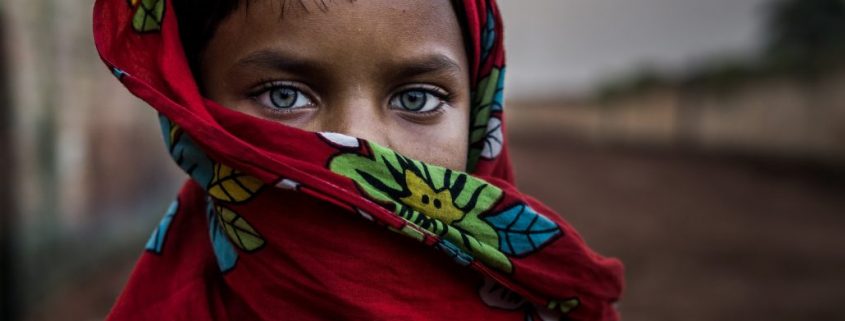Wearing, Caring and Community Involvement Win Big in Cannes
This year, Cannes Lions’ Grand Prix Health Grand Prix for Good award went to an unlikely name. Alongside Afghanistan’s Ministry for Health, McCann Health and McCann Worldgroup Partner swept up the coveted prize, along with four gold Lions, four silvers, and one bronze–the most awards to ever go to one entity at Lions Health.
The partnership was lauded for their simple but endlessly elegant “Immunity Charm” campaign, which aimed to help standardize and encourage pediatric vaccine record-keeping in Afghanistan. A country that’s been war-torn for over a decade, Afghanistan has one of the lowest vaccination rates ever, and the world’s worst infant mortality rate. Simple services are poorly coordinated and difficult to track, and rural communities are often prone to losing paper records. Furthermore, the country has a huge cultural issue of marginalized mothers simply not showing up to the hospital.
Taking center stage is the “Immunity Charm” initiative. It is a singular example of social good that latches onto native culture and grows organically. Relevant to Indian and Middle-Eastern tradition, the bracelet fits a baby’s wrist, with black beads and one “evil eye” to protect the child from evil spirits. Each time a child receives a new vaccine, a corresponding colored bead is added as a signifier. The bracelet becomes an analogue wearable in record-keeping.
The brain behind the idea, Dr. Harshit Jain, explains in an interview for MM&M that there were three major components for the campaign’s overwhelming success, both in the field and at Cannes. As marketing director for APAC and country head for India at McCann Health, Jain stresses that simplicity, cultural relevance, and a tangible product created the winning combination.
Simplicity of the campaign, Jain explains, made it easy for professionals and marketers to explain the function and significance of the campaign. Keeping culturally relevant “cuts backlash” when introducing to a new society, but also creates a faster, more organic growth in traction that he claims “no amount of media can actually match.” As for the tactile nature of a bracelet, it brings professionals closer to the campaign’s purpose, whereas big data and employing too much technology can often over-complicate and “reduce the scalability of any initiative.”
“When we are looking at solving big, public health problems,” Jain insists, “I think scalability has to be at the core of it.”
McCann’s campaign reminds us that in an industry such as pharma, always driven and directed by big technology, we often forget that sometimes the best strategy is the simple strategy. It’s important that the approaches to social issues are socio-culturally rooted, and can grow naturally in ways that not just bolsters someone’s quality of life but also accommodates its nuances and limitations.
On that note, we reach what was expressed as a key takeaway from this year’s awards ceremony, that ads alone aren’t enough, and that it’s time pharma marketers approached scaleable solutions to larger issues as part of their campaigns. It will be a thrill to see, after all the press McCann received this year, if more firms contribute to a trend of social utility-driven campaign strategies.
Photo by:
Avik Saha



